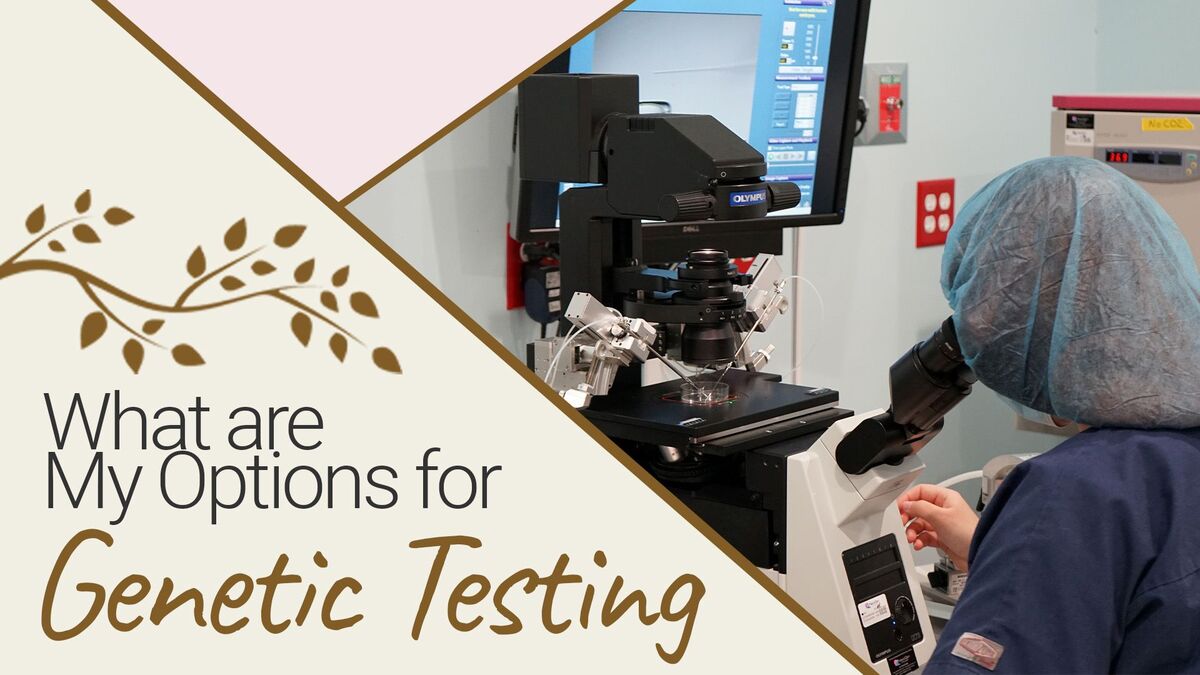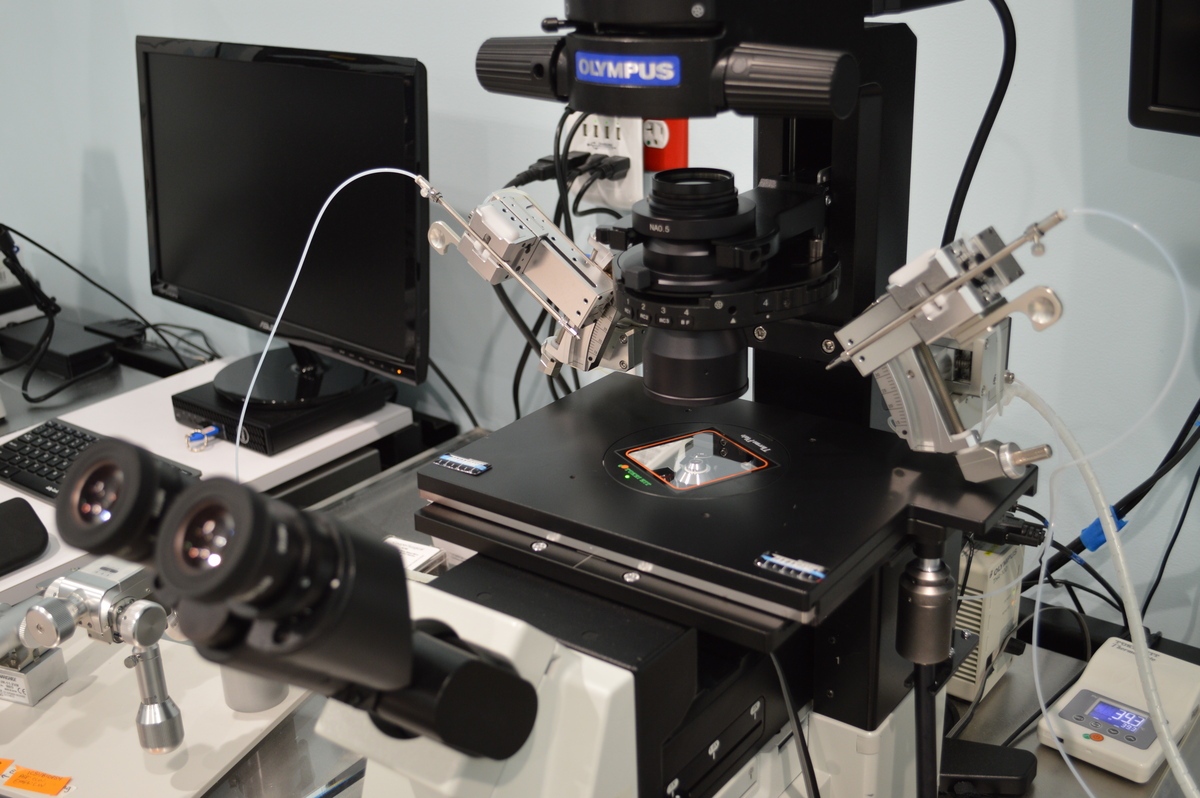What are My Options for Genetic Testing?

If you are trying for a baby, or considering trying for a baby, then you may have heard of genetic testing as an option for analyzing your genetic makeup to help you go into pregnancy with more information about the potential outcomes.
There are many different types of genetic tests available that are meant to analyze changes in genes, proteins, chromosomes, DNA, and more. These results can all inform your medical care and guide the decisions you make before, during, and after pregnancy.
However, before you pursue genetic testing, it is important to know your options. This guide is designed to lay out a few different genetic testing options that you may wish to consider before pregnancy especially if you are pursuing fertility treatment. We will discuss carrier screenings, preimplantation genetic testing, non-invasive prenatal testing, and karyotyping. Keep reading to learn more about your genetic testing options!

What is Genetic Testing for Fertility Treatment?
Genetic testing for fertility treatment involves assessing the DNA of prospective parents or embryos to detect potential genetic disorders, chromosomal abnormalities, or inherited conditions that may impact fertility, pregnancy outcomes, or the child’s health. This testing is particularly relevant for couples undergoing assisted reproductive technologies, such as IVF or IUI.
By analyzing genetic material, healthcare providers can identify risks for specific genetic conditions, enabling informed decision-making regarding embryo selection and the potential need for preimplantation genetic testing. This targeted approach helps reduce the likelihood of passing on hereditary diseases and increases the chances of a successful pregnancy.
Additionally, genetic testing can assess the overall viability of embryos, leading to better outcomes for couples.
What Are Some Kinds of Genetic Testing That I Need to Consider?
With the advent of advanced technologies, there are several types of genetic tests available, each serving distinct purposes. Understanding what these tests can reveal is crucial for making informed decisions about health management and genetic counseling.
Below are some of the most common types of genetic testing for prenatal screenings.
Carrier Screening
A carrier screening is a genetic test designed to determine whether prospective parents carry genes for specific inherited disorders, such as cystic fibrosis or sickle cell anemia. By identifying carriers, this screening plays a vital role in assessing the risk of passing on these genetic conditions to their children.
The process:
The process typically involves a simple blood or saliva sample from each parent. The samples are then analyzed to check for mutations in genes associated with various genetic disorders. If both parents are identified as carriers of the same condition, they may have a significantly increased risk of having affected children.
Why a carrier screening?
Carrier screening provides valuable information that can guide reproductive choices. It empowers prospective parents to explore options such as in vitro fertilization with preimplantation genetic testing, donor gametes, or the possibility of additional prenatal testing during pregnancy. By understanding their genetic risks, parents can make informed decisions that align with their values and family goals, ultimately shaping a healthier future for their children.
Preimplantation Genetic Testing (PGT)
Preimplantation Genetic Testing (PGT) is a genetic test especially relevant for IVF. This test is effective because it allows a reproductive endocrinologist to examine the embryos for genetic abnormalities prior to implantation. It enhances the chances of a successful pregnancy and reduces the risk of genetic disorders in offspring.
There are three main types of PGT:
- PGT-A (Aneuploidy) This type detects chromosomal abnormalities, including conditions like Down syndrome. By identifying embryos with the correct number of chromosomes, it helps to select those with the best potential for healthy development.
- PGT-M (Monogenic/Single Gene Disorders) Designed for parents who are known carriers of specific genetic conditions, PGT-M screens embryos for these inherited disorders, ensuring that only healthy embryos are implanted.
- PGT-SR (Structural Rearrangements) This test identifies structural chromosome abnormalities, such as translocations, which could lead to issues in pregnancy or developmental disorders.
Non-Invasive Prenatal Testing (NIPT)
NIPT is a genetic screening technique that analyzes a blood sample from a pregnant woman to detect chromosomal abnormalities in the developing fetus. This advanced method focuses on identifying conditions such as Down syndrome (trisomy 21), Edwards syndrome (trisomy 18), and Patau syndrome (trisomy 13) early in the pregnancy.
How does NIPT work?
NIPT operates by isolating and examining cell-free fetal DNA present in the mother’s bloodstream. Due to its non-invasive nature, it poses no risk to the fetus and offers a safer alternative compared to invasive procedures like amniocentesis or chorionic villus sampling.
The test is highly sensitive and specific, allowing for early detection of potential genetic conditions, typically as early as the 10th week of gestation. With its accurate outcomes, NIPT empowers expecting parents with essential information about their baby’s health, facilitating informed decision-making and planning. As NIPT continues to evolve, it represents a significant advancement in prenatal care and genetics.
Karyotyping
Karyotyping is a laboratory technique used to analyze the number and structure of chromosomes in prospective parents or embryos. This method involves staining chromosomes to produce a distinct pattern, allowing for the identification of chromosomal abnormalities such as deletions, duplications, translocations, or aneuploidy (an abnormal number of chromosomes).
Why pursue karyotyping?
Karyotyping is particularly important in reproductive medicine, as it helps detect large-scale chromosomal abnormalities that could impact fertility, increase the risk of miscarriage, or lead to genetic disorders in offspring. By examining the karyotype, healthcare professionals can assess the genetic viability of embryos during IVF procedures, aiding in the selection of embryos for transfer. Additionally, karyotyping can exonerate couples with unexplained fertility issues by revealing underlying chromosomal issues.
Genetic Testing for Fertility with the Fertility Wellness Institute of Ohio
Genetic testing is extremely helpful for prospective or future parents to prepare and plan for starting a family. It can help inform parents of their chance of passing down genetic diseases and can help identify some causes of fertility issues.
If you are curious about pursuing genetic testing while trying to get pregnant or during pregnancy, the Fertility Wellness Institute of Ohio is here to help.
Click here to schedule an appointment today!
Follow the Fertility Wellness Institute of Ohio on Facebook, Instagram, X, and LinkedIn!
Do you want to share your fertility journey with the Fertility Wellness Institute of Ohio? Click here to share your story!

